Books & Reading
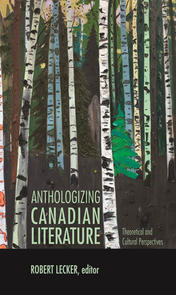
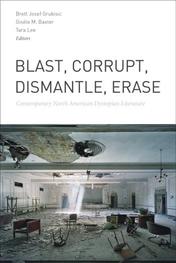
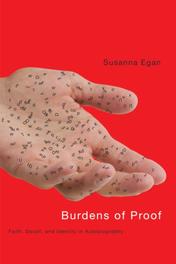
Excerpt from Chapter 1, Burdens of Proof by Susanna Egan
From Chapter 1 Doubting Thomas: The Implications of Imposture in Autobiography
This book is about imposture in autobiography, which I define as a serious disconnect between the author as a person alive in the world, pre-text, before any story emerges, and the written life, what I am calling the textual identity. Imposture, in other words, is not fiction and is not even the fictionalizing of stories based on truth. Nor is it small lies such as creep into every personal story because the story sounds better that way. Nor is it lapses or distortions of memory, with which honest autobiographies are replete. Imposture is distinct from all of these because it is a pretense; impostors are frauds, fakes, plagiarists, and phonies. They claim lives they have not lived, experiences they have not had, and identities that belong to other people. They do so for many reasons and often with significant success, often, but not always, causing real damage in the real world. However, though some of the cases I examine anger me, my project is not simply a moral one; rather, it sets out to explore histories of faith and of doubt. What do we believe, and why? (Why, for instance, do we believe that regular autobiography tells the truth, or any kind of truth?) What leads us to doubt, and how do we excavate the truth that is eluding us? The impostor is like the Wizard of Oz, just a little person creating big effects from a secret hiding place. Part of my pleasure with this work has been flinging back the curtain with a triumphant “aha! ” but part has also been working with the knowledge that all autobiography surely performs aspects of identity—which I understand as those partial, temporary, certainly elusive elements of self as one is perceived or as one feels oneself to be. How is imposture so different? Does it adopt the wrong posture? Does it hide the unacceptable secret?
I have always had a soft spot for Doubting Thomas. He was a faithful disciple through difficult times, prepared to die with Jesus if need be (John 11: 16), but he found stories of Jesus¿ resurrection just over the top. His faith could not go that far: he needed proof. For Thomas, proof meant a physical body and physical wounds (John 20: 24-29). Though all the gospels list Thomas as among the twelve, only John's—by far and away the least literal—develops this story of Thomas's doubt. For me, this doubt would have less impact if it appeared among the more grounded biographical narratives of Matthew, Mark, or Luke. (Indeed, who remembers Matthew's throwaway line at 28: 17 that some disciples were doubtful?) The full story of Thomas's doubt appears only in John¿s gospel; and appears, furthermore, at a point when we as readers have given ourselves over to the impact of a story that does not depend on fact for its power. Thomas's call for factual proof is a shock. He doubts at the very point where everyone else is carried away with excitement. Their story is thrilling and astonishing (Jesus has risen from the dead), but Thomas hesitates and asks for proof. So Doubting Thomas is the patron saint of my present work because his story goes to the heart of my concerns: How and why do astonishing stories arise, and with what effects? How, and why, and with what effects, are they called into question?
From Chapter 3 Sensational Identities: Made in the Media
I did not read A Million Little Pieces when it came out or even when it became a bestseller. I was immersed at the time in the reading required for classes and research, so I depended on reviews and discussion for many books that were attracting the attention of friends and neighbours. However, by February 2006, I noticed that we were into week five of the scandal that had followed James Frey's autobiography after it was shown to be a tissue of lies. My desk soon became littered with printouts from the links from the links on the Internet. Family and friends were e-mailing these sites to me on a daily basis, an international Web of our own for gossip and for sharing news. .. . The extent of the scandal was quite astonishing. Colleagues who knew I was interested in imposture began accosting me on the stairs, in the washroom, and at the water cooler wanting to know if I was having fun. (Yes, I would be having fun if I could keep up. ) The Frey scandal opened up for all to see the kinds of issues that had been concerning me for a while. “Do you think, ” Michelle, my massage therapist, asked, “that we should be reading memoir the same way we read fiction? For me, ” she said, “the two are quite different because I believe what I read in memoir. I'm not reading a fictional story, I'm reading about a real person. ” Exactly the kind of question I had been working with. Clearly, I had to do some solid research here—at least as solid as Michelle's—and read the book itself. “What on earth do you want this one for?” asked my friend at special orders in the bookstore, clearly implying that my habits tend to be more salubrious. “Are you buying this one in spite of yourself?” asked the woman at the till, whom I don't know at all. After all the hype, I fell asleep within thirty pages. However, serious research is always a hard slog, and my interest in imposture is more than a little connected to my own fears about being an impostor myself. As I approached retirement I took comfort in a friend's kind reassurances that if I got away with it for just a little while longer, I'd have had "them" fooled.
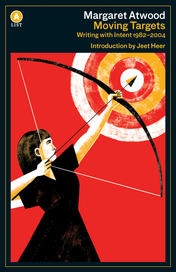
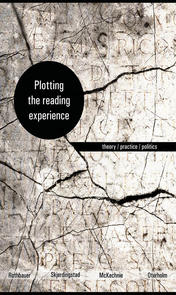
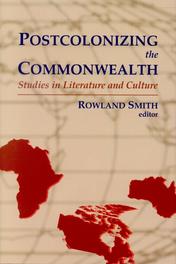
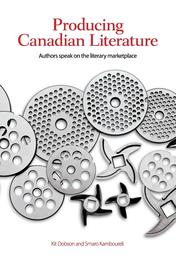
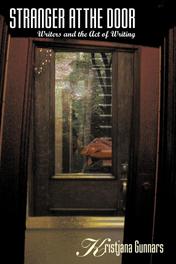
Excerpts from Stranger at the Door: Writers and the Act of Writing by Kristjana Gunnars
From The Preface
This collection of essays evolved during a decade spent as a professor of creative writing at the University of Alberta. Everyone knows that teaching creative writing is a mixed bag that involves everything, and you can never be sure how it will go or whether it will be useful or not. One of the great obstacles for teaching in the creative fields, as Theodor Adorno mentions in his essay “Taboos on the Teaching Vocation,” is the natural antipathy toward the regimentation that is imposed by the educational system itself (Critical Models 177). Creative work needs to be free and unhampered by outside voices. The writer needs to feel the confidence of his or her own voice, which is often taken away in the classroom--invariably far too early. Students are, in fact--in Adorno's own phrase--not even considered “legal subjects having fully equal rights” (181) with their teachers and administrators. In an environment where “spirit is reduced to a commodity” (182) and where the lineage of the teacher is drawn from both the monk, the jailer, and the drill sergeant, and where he or she is simultaneously regarded as “a kind of cripple” (183), teaching writing may be simply absurd. There is the possibility that the school, with its enclosed systems of thought and regulations, may be mistaken for reality, and this is deadly for creativity, which gets its lifeblood from sensitivity to the world around us. Indeed, Adorno says succinctly what many students voice in their own ways: that “what occurs in school remains far below the pupils' passionate expectations” (187). Here is Adorno's shattering assessment, in fact, of the teaching vocation and its ties to the learning vocation: “One hears again and again--and this I wish only to register, without presuming to pass judgment--that student teachers during their training period are broken, cast in the same mold, that their élan, all that is best in them, is destroyed (189).
For Adorno, this is a political matter. The problem with education as a destruction of the soul is of critical importance because the schools and universities have an obligation to refrain from producing and encouraging people who would participate in, for example, genocide. In his essay “Education After Auschwitz,” he speaks of “the administered world” and how it produces a “fury against civilization” (193). “The only education,” he claims,”that has any sense at all is an education toward critical self-reflection” (193). It is on this point that the learning and teaching of creative writing, for all the obstacles and frequent absurdities such education is faced with--based as it is on the talking seminar and the intense analysis of words and sentences and logic and thoughts and ideas in a text--is incredibly valuable. My contention is that the writing seminar just might be the most valuable place in the entire school, for what goes on there is at the heart of what education should do: it takes the student, and inevitably also the teacher, on a journey “toward critical self-reflection. “ Adorno goes so far as to insist that “the single genuine power standing against the principle of Auschwitz” is the ability to acquire “the power of reflection, of self-determination” (195). He points out that the “educational ideal of hardness, in which many may believe without reflecting about it, is utterly wrong” (197). The creative arts--writing, editing, composing--are the very thing we do to combat that hardness embattling us on all sides. Writers are, and should be, profoundly sensitive to others, and to the emotions of others. Says Adorno, quite rightly for the fostering of writing,”an education must be promoted that no longer sets a premium on pain and the ability to endure pain” (198). He envisions an education that does not foster our repressions but allows them to be aired and respected--lest they be displaced into rage or manipulativeness or sadism. We fetishize technology and order and efficiency, and these are anathema to the creative soul. What we attempt to do in the writing room is, to put it bluntly,”an exhortation to love” (202). It is no surprise that creative writing as a discipline suffers humiliations in the academy, but it is also a remarkable feat that this field of endeavour not only goes on in the university, but even thrives and grows as well.
There is a good essay on these issues, specific to creative writing in the academy, by Madison Smartt Bell, which is his introduction to a textbook called Narrative Design: A Writer's Guide to Structure. Bell talks about the “paradox” of learning creative writing; learning writing is different from all other fields of study because “you will not encounter universal axioms and theorems, as in mathematics, or a fixed corpus of information to be learned, as in history, or even a generally agreed-upon set of rules for procedure, as in expository writing. More likely you will find yourself adrift in a cloud of conflicting opinions” (3). You have to get used to being “adrift” and uncertain. Bell argues that “the lack of fixity, the flux of most creative writing classes, permits at least some kind of freedom--but freedom can be a spooky thing to handle” (3). While the idea of a writing workshop is good, he notes,”there are snakes in the garden” (5). There is no consensus, for one thing; and there is little recognition of real success when it occurs, because everything is geared towards the critique. The students--and the teacher--have to tread the line carefully between the creative process--which is highly private and solitary--and the act of critical analysis--which is a group activity.
Since I myself walked that tightrope for several years, I've had ample opportunity to ponder the various formulations of the marriage between creative writing and academic literary studies. It was because the “paradoxes” were on my mind all the time that I ended up making notes to myself on writing and life and learning--on reading the works of respected and accomplished writers in the public sphere. Those notes eventually led to the essays collected here. More than this, however, these essays are really an outgrowth of conversations with students. The task at hand, under whatever circumstance, has always been to keep the conversation going and the writing happening. It was especially the graduate courses that provided me with the milieu in which the creative and the intellectual could mix--and the real relationship between the creative and the analytical found its form. But in this field, learning goes on at the strangest moments, and creative writing is an education that involves the whole person. Because of that fact, many interesting (and some strange) things occur along the way. We all get inspired, find it difficult, and hit the wall at various times. But the creative writing seminar and the spin-offs of those classes--casual conversations over coffee, discussions and manuscript readings in the office, the question and answer periods after official readings by visiting writers, correspondence--can contain the most valuable part of this kind of education.
From Chapter 1: The Art of Solitude
Some heightening of consciousness. .. is clearly desirable in society as a whole. But what these writers are talking about is perhaps more intense, more poetic and spiritual, than the idea of being fully aware of what is around you--the way anyone might try to be aware. However the difference is only one of degree, not of quality. At least one can expect people to reach for such a state--and they do, if the popularity of authors like Coelho and Gaarder is any indication. Both writers have produced works that encourage the quest for learning and self-awareness. And society needs such encouragement, or it will not be able to function. That is a position argued by John Ralston Saul in his book The Unconscious Civilization. For Saul, it is not so much a spiritual matter as it is social, political, and even economic. Unless we are conscious, he maintains, we cannot act intelligently. What he does not point out is how hard it is to integrate thought and feeling, action and knowledge. It simply is not easy, and Saul sets the bar high. Writers tend to be clearer on the process involved. But Saul articulates the matter in his own way when he maintains that the “true characteristic of consciousness is. .. not simply knowledge, but a balanced use of our qualities so that what we know and say is related to what we do” (186). To illustrate this point, he uses the example of Thomas Jefferson, who said that everything in life depends on how you approach reality. When handled in the right way, the right frame of mind, and in the right spirit, the “Gordian knot” of all the things in life that are unexplainable will untie itself effortlessly (192).
It has always seemed to me that good accomplishments are unlikely unless the life they come out of is good. It seems like it would be very difficult to have a complex and frustrated home life which the writer then turns around and switches off in order to work. It is hard to think when conditions are adverse. Many writers have apparently done so, but the conditions that will empower good work must be there. In order to write well, I believe it is necessary to live well. As Annie Dillard says: “There is no shortage of good days. It is good lives that are hard to come by” (Writing 32). We know this instinctively, and this is what attracts us to good writing. The mind behind the words reveals itself. In The Writing Life, Dillard asks the question most often pondered by practitioners of imaginative writing: “How do you prepare yourself, all alone, to enter an extraordinary state on an ordinary morning?” (47). The right mood, atmosphere, tone, all have to be found. About her own experience, Dillard confesses that “I could not add a word until I was ready, or that word would enfeeble or punctuate the work” (48).
Laura Riding, the American poet who was perhaps most famous for her association with Robert Graves, expresses such sentiments as well in her unusual text The Telling (7). Her comment on the relationship between the writer and her text is quoted in an essay on her by Paul Auster, titled “Truth, Beauty, Silence. “ Here Riding remarks that “if what you write is true, it will not be so because of what you are as a writer but because of what you are as a being. There can be no literary equivalent to truth. If, in writing, truth is the quality of what is said, told, this is not a literary achievement: it is a simple human achievement” (Auster, 73). Paul Auster, who admires Riding's work, adds the observation that Riding's view of life and writing is similar to Ben Jonson's, who once claimed that “only a good man is capable of writing a good poem. “ Auster notes that this connection between the work and the person “is an idea that stands at one extreme of our literary consciousness, and it places poetry within an essentially moral framework” (73-74). .. .
From Chapter 6: Writing and Silence: The Unteachable Mystery of Words
Here I come to the anguish, one might say, of the unhappy teacher--the idea I began with. It is possible to teach others the technical aspects of writing. It is also possible to point out how to access some of our innermost thoughts. One may even convince another person how not to be afraid of the blank page and how to get over writer's block, and how to locate sources of inspiration. But if you do not intuit your people, your culture, the language you are using, the mythologies of our existence, and our continuous myth-making capacities, none of the things you are taught will be of use to you. If you are not able to function inside the uncertainties and doubts and absences the writing act will engage you in, you are lost before you begin. That insight into our mythologies, and into that condition of doubt required for writing, is not so teachable. Such a disposition is so deeply about you yourself: who you are, how you came to be that way, what your history is. The core of writing requires something that is very vulnerably personal, and yet at the same time very communal. That combination is what Blanchot calls mysterious. It is this core at the heart of writing that he would say is beyond the grasp of the average person--for whom our mythologies are not consequential enough, and for whom the world and its universe are more certain and safe than they are for the writer in the act of grasping the shifting nature of everything.


